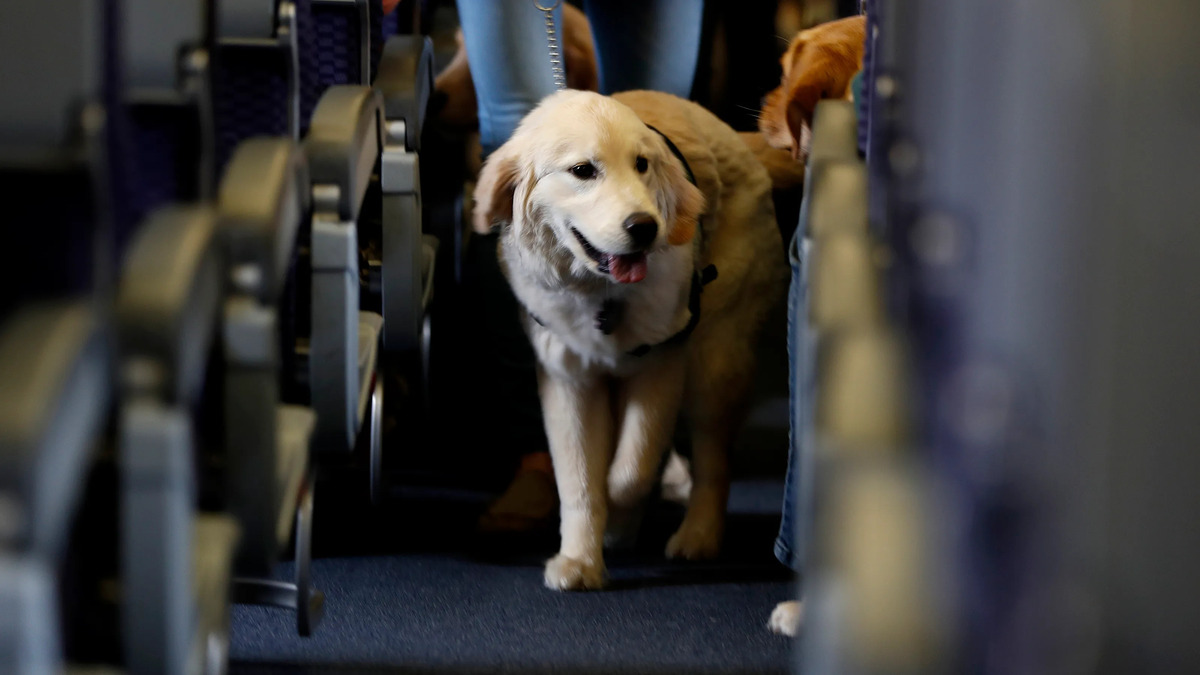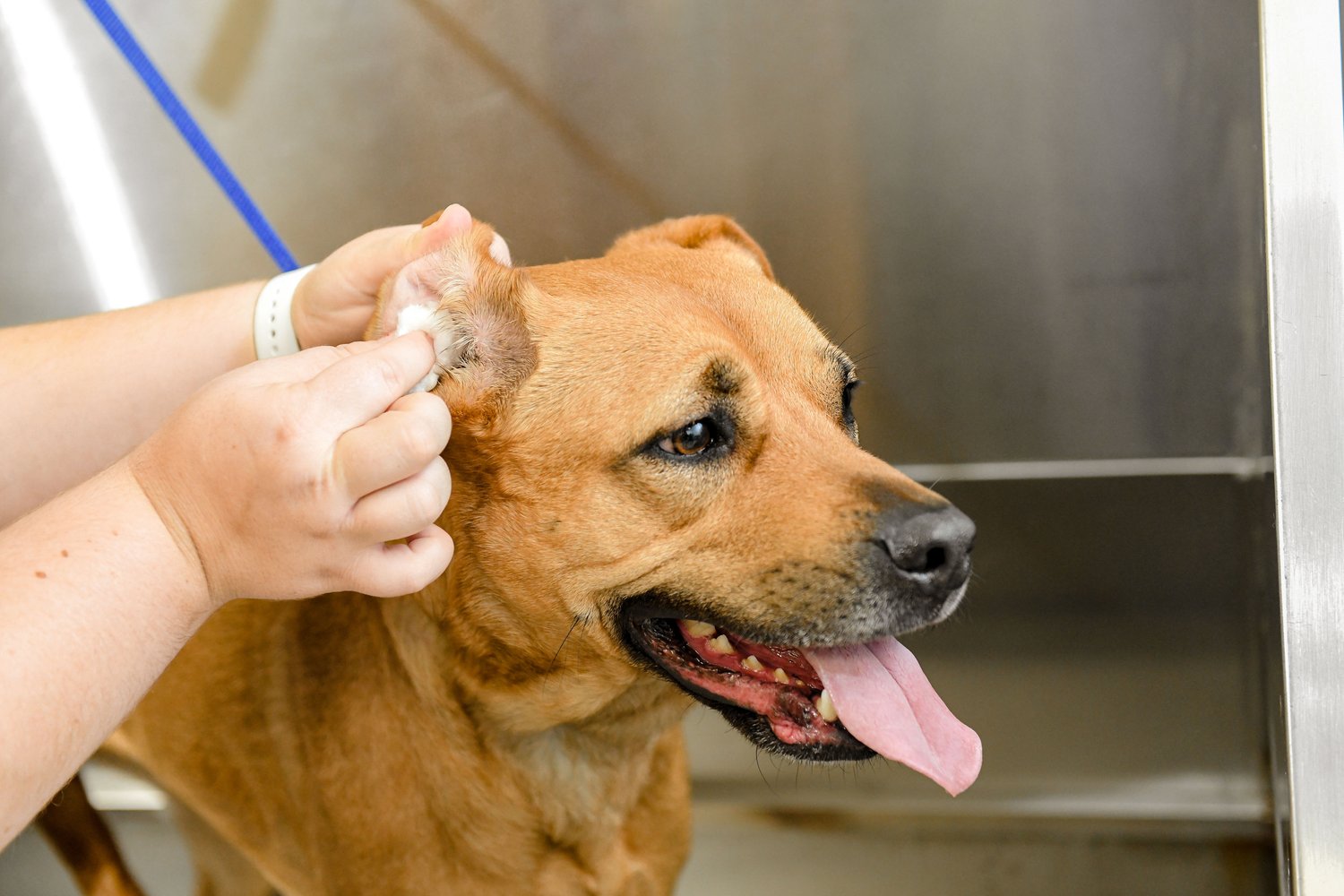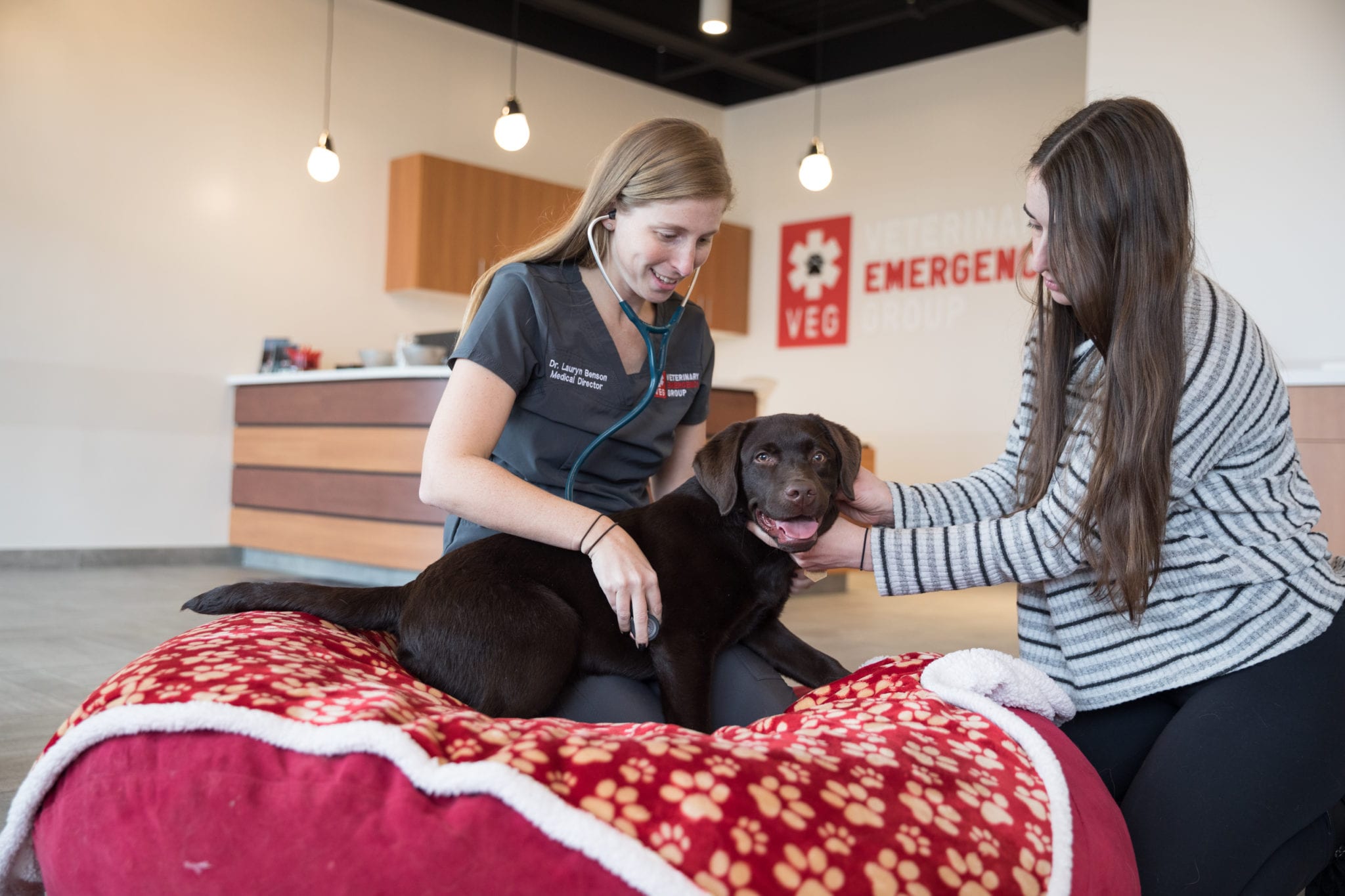Home>Health & Wellness>Common Health Issues>What Is Allergic Bronchitis In Dogs


Common Health Issues
What Is Allergic Bronchitis In Dogs
Published: January 26, 2024
Learn about common health issues in dogs, including allergic bronchitis. Discover symptoms, treatment, and prevention tips to keep your pet healthy.
(Many of the links in this article redirect to a specific reviewed product. Your purchase of these products through affiliate links helps to generate commission for Pawsomeoldies.com, at no extra cost. Learn more)
Table of Contents
Introduction
Allergic bronchitis is a common health issue that can affect dogs of all breeds and ages. This condition, also known as allergic airway disease, is characterized by inflammation of the airways in response to allergens such as pollen, dust, mold, or certain chemicals. When a dog inhales these allergens, it can trigger an immune response that leads to irritation and swelling of the bronchial tubes.
Just like humans, dogs can experience respiratory problems due to allergies. Allergic bronchitis can cause discomfort and distress for our furry friends, impacting their overall well-being and quality of life. It's essential for dog owners to recognize the signs of allergic bronchitis and understand how to manage and prevent this condition.
In this article, we will delve into the details of allergic bronchitis in dogs, including its symptoms, causes, diagnosis, treatment options, and preventive measures. By gaining a comprehensive understanding of this condition, dog owners can take proactive steps to support their pets' respiratory health and provide them with the care they need to thrive.
Understanding Allergic Bronchitis in Dogs
Allergic bronchitis in dogs is a respiratory condition that results from the inflammation of the airways due to exposure to allergens. When a dog inhales these allergens, it can trigger an immune response that leads to irritation and swelling of the bronchial tubes. This inflammation can cause the airways to become narrow, making it difficult for the dog to breathe comfortably.
Dogs with allergic bronchitis may experience coughing, wheezing, and difficulty breathing, similar to the symptoms seen in humans with asthma. The condition can be chronic, with symptoms persisting over an extended period, or it can occur intermittently, triggered by specific allergens.
It's important to note that allergic bronchitis is different from infectious bronchitis, which is caused by bacteria or viruses. Allergic bronchitis is specifically linked to an allergic response, making it essential for dog owners to identify and manage potential allergens in their pet's environment.
Understanding the nature of allergic bronchitis in dogs is crucial for providing appropriate care and support. By recognizing the symptoms and triggers of this condition, dog owners can take proactive measures to alleviate their pet's discomfort and improve their respiratory health.
In the following sections, we will explore the symptoms, causes, diagnosis, treatment options, and preventive measures related to allergic bronchitis in dogs, offering valuable insights for dog owners seeking to enhance their pet's well-being.
Symptoms of Allergic Bronchitis in Dogs
Recognizing the symptoms of allergic bronchitis in dogs is crucial for early intervention and effective management of this condition. While the signs may vary among individual dogs, there are several common symptoms that can indicate the presence of allergic bronchitis:
-
Persistent Coughing: Dogs with allergic bronchitis often exhibit a persistent, dry cough that may worsen after physical activity or exposure to allergens. The coughing may be more noticeable at night or early in the morning.
-
Wheezing and Labored Breathing: Wheezing sounds during breathing and labored breathing, especially after exercise or excitement, can indicate airway inflammation and constriction in dogs with allergic bronchitis.
-
Reduced Energy and Exercise Intolerance: Dogs may display decreased energy levels and reluctance to engage in physical activities due to respiratory discomfort caused by allergic bronchitis.
-
Excessive Mucous Production: Some dogs with allergic bronchitis may experience increased production of mucus, leading to nasal discharge or coughing up phlegm.
-
Gagging or Retching: Dogs may exhibit gagging or retching, particularly after coughing fits, as a result of the irritation and inflammation in their airways.
-
Restlessness and Discomfort: Restlessness, pacing, or difficulty finding a comfortable resting position can be indicative of respiratory distress associated with allergic bronchitis.
-
Weight Loss: Chronic allergic bronchitis can lead to weight loss in dogs due to reduced appetite and the energy expended during labored breathing.
It's important to note that these symptoms may overlap with other respiratory conditions or health issues, making a proper diagnosis essential. If a dog exhibits any of these symptoms, especially if they persist or worsen over time, it's crucial to seek veterinary care for a thorough evaluation and appropriate management.
By being attentive to these symptoms, dog owners can promptly address potential respiratory issues and provide their pets with the necessary support and treatment to alleviate discomfort and improve their overall well-being.
Causes of Allergic Bronchitis in Dogs
Allergic bronchitis in dogs is primarily triggered by the inhalation of allergens that provoke an immune response, leading to inflammation and irritation of the airways. Understanding the specific causes of allergic bronchitis is essential for identifying potential allergens and implementing measures to reduce a dog's exposure to these triggers.
-
Environmental Allergens: Common environmental allergens that can contribute to allergic bronchitis in dogs include pollen, dust mites, mold spores, and certain chemicals. These allergens are often present in the outdoor and indoor environments where dogs spend their time, leading to respiratory irritation upon inhalation.
-
Secondhand Smoke: Exposure to secondhand smoke can exacerbate respiratory issues in dogs and contribute to the development of allergic bronchitis. The harmful chemicals and particulates in cigarette smoke can irritate the airways, leading to inflammation and discomfort for dogs.
-
Air Pollution: Dogs living in urban or industrial areas may be exposed to higher levels of air pollution, including vehicle emissions and industrial pollutants. Prolonged exposure to air pollution can contribute to respiratory inflammation and increase the risk of allergic bronchitis.
-
Allergies to Specific Substances: Some dogs may develop allergic reactions to specific substances commonly found in their surroundings, such as certain types of grass, trees, or household cleaning products. These individual sensitivities can trigger allergic bronchitis symptoms upon exposure.
-
Seasonal Allergies: Seasonal changes can bring about an increase in pollen and other outdoor allergens, leading to heightened respiratory sensitivity in dogs. Spring and fall are common seasons when dogs may experience exacerbated allergic bronchitis symptoms due to environmental allergens.
-
Indoor Irritants: Indoor irritants such as dust, pet dander, and household chemicals can contribute to allergic bronchitis in dogs, particularly for those with sensitivities to these substances. Poor indoor air quality can exacerbate respiratory issues and contribute to ongoing airway inflammation.
By recognizing these potential causes of allergic bronchitis in dogs, pet owners can take proactive steps to minimize their pet's exposure to allergens and create a more supportive environment for respiratory health. Implementing strategies to reduce allergen exposure, such as regular cleaning, air filtration, and minimizing exposure to secondhand smoke, can help mitigate the risk of allergic bronchitis and improve the overall well-being of dogs.
Diagnosing Allergic Bronchitis in Dogs
Diagnosing allergic bronchitis in dogs involves a comprehensive approach that considers the pet's medical history, clinical symptoms, and diagnostic tests to confirm the presence of this respiratory condition. Since the symptoms of allergic bronchitis can overlap with other respiratory issues, a thorough evaluation by a veterinarian is essential for accurate diagnosis and appropriate management.
During the diagnostic process, the veterinarian will typically begin by conducting a detailed physical examination of the dog, paying close attention to respiratory sounds, coughing patterns, and overall lung function. The veterinarian may inquire about the dog's living environment, potential allergen exposure, and any recent changes in behavior or activity levels that could indicate respiratory distress.
In addition to the physical examination, the veterinarian may recommend diagnostic tests to further assess the dog's respiratory health. These tests may include:
-
Radiographic Imaging: X-rays or other imaging studies can provide valuable insights into the dog's lung and airway health. Abnormalities such as airway inflammation, bronchial constriction, or changes in lung tissue may be indicative of allergic bronchitis.
-
Bronchoscopy: In some cases, a bronchoscopy may be performed to visually examine the dog's airways using a specialized scope. This procedure allows the veterinarian to directly assess the condition of the airways and collect samples for further analysis.
-
Allergy Testing: Allergy testing, such as skin or blood tests, may be recommended to identify specific allergens that could be triggering the dog's respiratory symptoms. Understanding the dog's allergic sensitivities can help in developing targeted management strategies.
-
Fecal Examination: In cases where parasitic infections are suspected as a contributing factor to respiratory symptoms, a fecal examination may be conducted to rule out parasitic infestations.
-
Blood Tests: Blood work, including a complete blood count and serum biochemistry, can provide valuable information about the dog's overall health and identify any underlying conditions that may be impacting respiratory function.
Once the diagnostic tests are completed and the veterinarian has gathered comprehensive information, a definitive diagnosis of allergic bronchitis can be made. This diagnosis enables the development of a tailored treatment plan to address the dog's specific respiratory needs and manage the underlying allergic triggers.
By undergoing a thorough diagnostic process, dogs with allergic bronchitis can receive targeted care and support, leading to improved respiratory comfort and overall well-being. Additionally, pet owners can gain valuable insights into their dog's respiratory health, allowing them to take proactive measures to create a conducive environment for their pet's respiratory wellness.
Read more: What Plants Can Dogs Be Allergic To
Treatment Options for Allergic Bronchitis in Dogs
The treatment of allergic bronchitis in dogs aims to alleviate respiratory symptoms, reduce airway inflammation, and manage the underlying allergic triggers to improve the dog's overall respiratory health. Upon receiving a confirmed diagnosis of allergic bronchitis, veterinarians may recommend a combination of treatment options tailored to the individual needs of the dog. These treatment approaches may include:
-
Allergen Avoidance: Identifying and minimizing the dog's exposure to specific allergens, such as pollen, dust, or certain chemicals, can significantly reduce the frequency and severity of allergic bronchitis symptoms. This may involve making environmental modifications, such as using air purifiers, minimizing outdoor exposure during peak pollen seasons, and creating an allergen-free living space for the dog.
-
Medication: Veterinarians may prescribe medications to manage the symptoms and inflammation associated with allergic bronchitis. This may include bronchodilators to help open the airways, corticosteroids to reduce airway inflammation, and antihistamines to alleviate allergic reactions. Additionally, cough suppressants may be prescribed to provide relief from persistent coughing.
-
Allergy Immunotherapy: For dogs with identified allergens through allergy testing, allergy immunotherapy, commonly known as allergy shots, may be recommended. This treatment involves administering gradually increasing doses of the specific allergens to desensitize the dog's immune system and reduce the severity of allergic reactions over time.
-
Nutritional Support: Providing a balanced and nutritious diet can support the overall health and immune function of dogs with allergic bronchitis. Certain dietary supplements, such as omega-3 fatty acids, may have anti-inflammatory properties that can help manage airway inflammation and support respiratory health.
-
Environmental Management: Creating an allergen-free environment for the dog, including regular cleaning, minimizing exposure to secondhand smoke, and using hypoallergenic bedding, can contribute to reducing respiratory irritants and improving the dog's comfort.
-
Regular Veterinary Monitoring: Ongoing veterinary care and monitoring are essential for dogs with allergic bronchitis. Regular check-ups allow veterinarians to assess the dog's respiratory health, adjust treatment plans as needed, and provide guidance on managing the condition effectively.
By implementing these treatment options in a comprehensive and tailored manner, dog owners can effectively manage allergic bronchitis and support their pet's respiratory well-being. It's important for pet owners to work closely with their veterinarians to develop a personalized treatment plan that addresses the specific needs of their dog, ultimately leading to improved respiratory comfort and a better quality of life.
Preventing Allergic Bronchitis in Dogs
Preventing allergic bronchitis in dogs involves proactive measures to minimize exposure to potential allergens and create a supportive environment for respiratory health. By implementing preventive strategies, dog owners can reduce the risk of allergic bronchitis and promote their pet's overall well-being. Here are essential steps to prevent allergic bronchitis in dogs:
-
Identify and Minimize Allergen Exposure: Understanding the specific allergens that can trigger allergic bronchitis in dogs is crucial for prevention. Dog owners can work with veterinarians to identify potential allergens through allergy testing and environmental assessments. Once identified, efforts can be made to minimize the dog's exposure to these allergens, whether they are outdoor triggers such as pollen or indoor irritants like dust mites and pet dander.
-
Maintain Clean Living Spaces: Regular cleaning of the dog's living spaces, including vacuuming, dusting, and washing bedding, can help reduce the accumulation of allergens that can contribute to respiratory irritation. Using air purifiers with HEPA filters can also aid in removing airborne allergens, promoting cleaner indoor air quality for the dog.
-
Limit Outdoor Exposure During Allergy Seasons: During peak allergy seasons, such as spring and fall when pollen levels are high, dog owners can minimize outdoor exposure for their pets. This can involve adjusting outdoor activities and walks to times when pollen counts are lower and taking precautions to prevent the tracking of outdoor allergens into the home.
-
Avoid Secondhand Smoke: Exposure to secondhand smoke can exacerbate respiratory issues in dogs and increase the risk of allergic bronchitis. Creating a smoke-free environment for the dog by avoiding indoor smoking and minimizing exposure to secondhand smoke can contribute to better respiratory health.
-
Provide a Balanced Diet and Nutritional Support: A well-balanced diet that supports the dog's overall health and immune function can play a role in preventing allergic bronchitis. Including dietary supplements with anti-inflammatory properties, such as omega-3 fatty acids, can help manage airway inflammation and support respiratory wellness.
-
Regular Veterinary Check-ups: Routine veterinary visits allow for the monitoring of the dog's respiratory health and the early detection of any potential issues. Veterinarians can provide guidance on preventive measures, assess the dog's overall well-being, and address any concerns related to respiratory health.
By incorporating these preventive measures into the care routine for dogs, pet owners can take proactive steps to minimize the risk of allergic bronchitis and create a supportive environment that promotes respiratory comfort and well-being for their beloved pets.
Conclusion
In conclusion, allergic bronchitis in dogs is a respiratory condition that can significantly impact the well-being of our canine companions. Understanding the symptoms, causes, diagnosis, treatment options, and preventive measures related to allergic bronchitis is essential for dog owners seeking to provide the best possible care for their pets.
Recognizing the symptoms of allergic bronchitis, such as persistent coughing, wheezing, reduced energy, and excessive mucous production, allows for early intervention and appropriate veterinary care. By being attentive to these signs, dog owners can promptly address potential respiratory issues and provide their pets with the necessary support and treatment to alleviate discomfort and improve their overall well-being.
The causes of allergic bronchitis, including environmental allergens, secondhand smoke, air pollution, and seasonal allergies, highlight the importance of minimizing a dog's exposure to these triggers. Implementing strategies to reduce allergen exposure, such as regular cleaning, air filtration, and minimizing exposure to secondhand smoke, can help mitigate the risk of allergic bronchitis and improve the overall well-being of dogs.
Diagnosing allergic bronchitis in dogs involves a comprehensive approach that considers the pet's medical history, clinical symptoms, and diagnostic tests to confirm the presence of this respiratory condition. Through a thorough diagnostic process, dogs with allergic bronchitis can receive targeted care and support, leading to improved respiratory comfort and overall well-being.
The treatment options for allergic bronchitis, including allergen avoidance, medication, allergy immunotherapy, nutritional support, and environmental management, aim to alleviate respiratory symptoms, reduce airway inflammation, and manage the underlying allergic triggers. By implementing these treatment options in a comprehensive and tailored manner, dog owners can effectively manage allergic bronchitis and support their pet's respiratory well-being.
Preventing allergic bronchitis in dogs involves proactive measures to minimize exposure to potential allergens and create a supportive environment for respiratory health. By identifying and minimizing allergen exposure, maintaining clean living spaces, and providing a balanced diet and nutritional support, dog owners can take proactive steps to minimize the risk of allergic bronchitis and create a supportive environment that promotes respiratory comfort and well-being for their beloved pets.
In essence, by gaining a comprehensive understanding of allergic bronchitis in dogs and taking proactive measures to manage and prevent this condition, dog owners can play a pivotal role in supporting their pets' respiratory health and overall quality of life.














